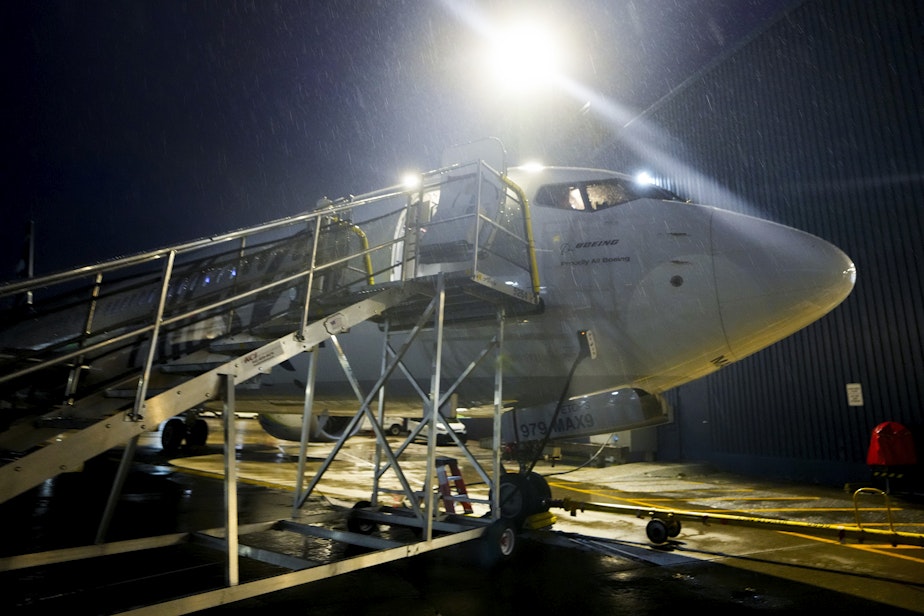What the 737 Max crashes can tell us about where Boeing is headed

For many, it's unimaginable that within six years of two deadly crashes of its 737 Max 8 jets, Boeing finds itself in yet another very visible crisis.
To others it's not actually too surprising. That's because some of the lessons that should have been learned in the wake of those tragedies appear to have gone unheeded.
Investigative journalist Peter Robison knows a lot about the decision-making that's led to Boeing's current predicament. He's the author of "Flying Blind: The 737 MAX tragedy and the fall of Boeing" and reports for Bloomberg.
Boeing's response to a door plug flying off an Alaska Airlines jet on Jan. 5 carries a more reflective and humble tone than its leaders have struck in the past, according to Robison.
RELATED: Boeing takes responsibility for 737 Max 9 failure: 'We caused the problem'
Sponsored
"The Boeing response in 2018 and 2019 was arrogant," he said.
At that time, then-CEO Dennis Muilenberg blamed the pilots behind the fatal Lion Air and Ethiopia Airlines flights, and also questioned the maintenance of the plane.
"In this case, Dave Calhoun — perhaps cognizant of the fact that that response ultimately cost Dennis Muilenberg his job — immediately came out and accepted blame, and appeared in the factory and said, 'This is our mistake,'" Robison explained.
Since the Max 8 tragedies, Boeing has made some changes that refocus on safety, like creating a safety committee on the company's board, which didn't exist prior to the crashes.
At the Pacific Northwest Aerospace Alliance conference in Lynnwood last week, Boeing executives were pushing a new message: "Take as long as you need; go slow."
Sponsored
"This was very surprising to the suppliers who were there because they were hearing the exact opposite message for the last eight to 10 years," Robison said. "And it was 'Speed up, speed up, speed up.'"
A preliminary National Transit Safety Board report last week on Alaska Airlines Flight 1282 confirmed that bolts were missing from the faulty door plug. But questions surrounding who removed the door and replaced it without the bolts remain.
RELATED: NTSB says key bolts were missing from the door plug that blew off a Boeing 737 Max 9
In the meantime, Boeing has another situation on the horizon: contract negotiations for the International Association of Machinists and Aerospace Workers.
After big contract wins for auto workers and Hollywood actors and writers, machinists are taking note and asking for a 40% raise.
Sponsored
"Machinists this time have much more leverage than they did in the last negotiations," Robison said.
With Boeing facing high turnover, retirements, and an "inflationary" environment, the union will probably feel emboldened to make some big asks, Robison added.
"Not just rate increases, but also guarantees about not moving work to other places, and even potentially bringing a pension back," he said.
Only time will tell how the aerospace giant will respond to its clouded reputation, and the challenges still coming down the pipeline.
Listen to the full interview with investigative journalist Peter Robison by clicking the play button at the top of this story.





